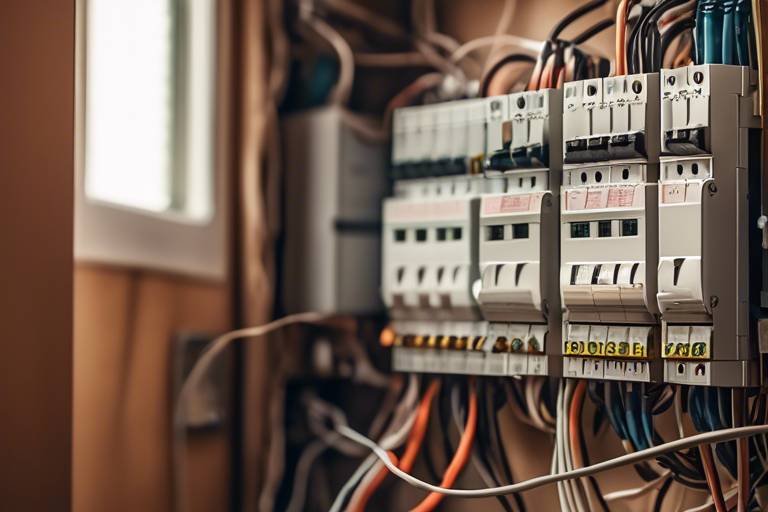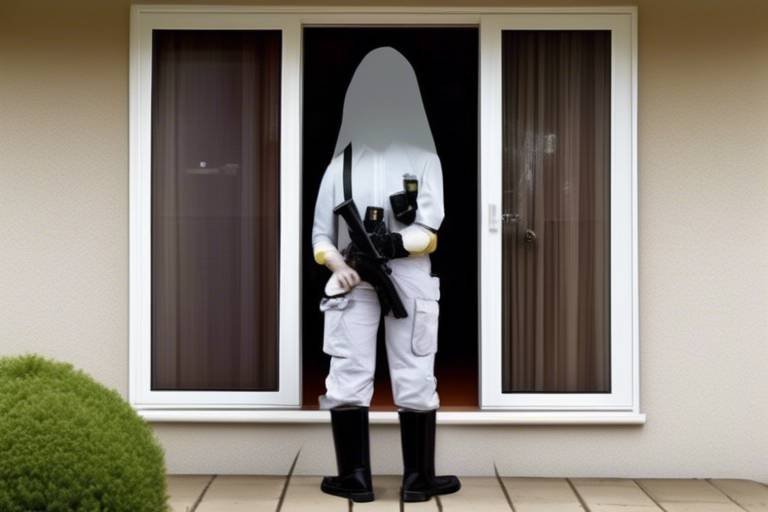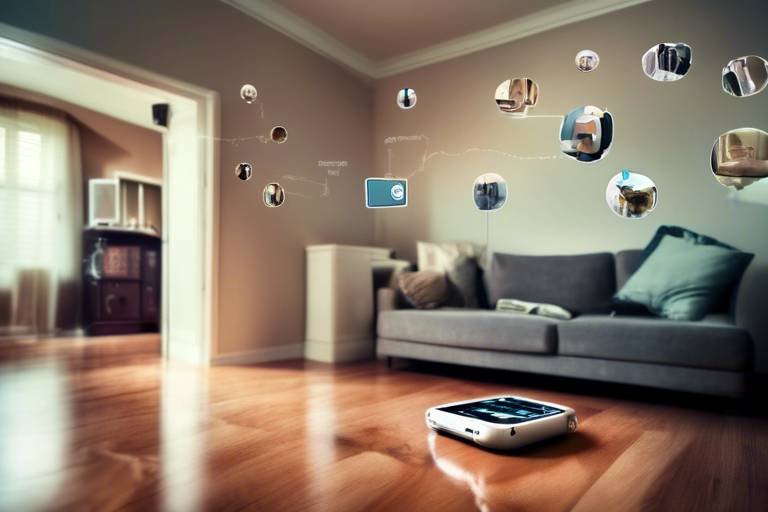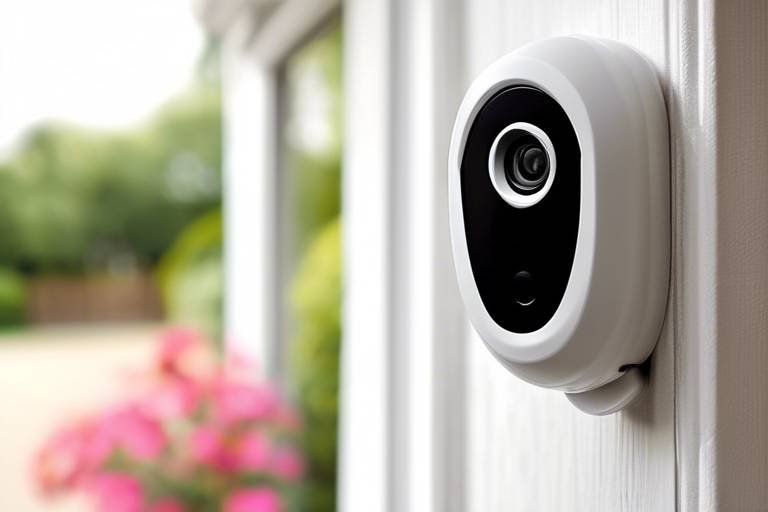What to Look for in a Residential Security Service
When it comes to protecting your home and loved ones, selecting the right residential security service can feel overwhelming. With so many options available, how do you know which one is the best fit for your unique needs? It's essential to take a step back and evaluate your situation carefully. Think of it like choosing a life jacket before embarking on a boat ride; you want to ensure you have the right one that suits your journey. In this article, we will explore the critical factors to consider when selecting a residential security service, ensuring you're well-equipped to make an informed decision.
First and foremost, understanding your specific security needs is crucial. Every home is different, and what works for one family might not be suitable for another. Start by assessing your home's vulnerabilities. Are there areas that are poorly lit? Is your neighborhood known for a higher crime rate? By identifying these weaknesses, you can tailor your security solutions accordingly. For instance, if you live in an area with frequent break-ins, investing in a robust alarm system and 24/7 monitoring might be your best bet.
Next, consider the types of security services available. There are a variety of options, including monitoring services, patrols, and alarm systems, each with its own set of benefits. For example, monitoring services provide real-time surveillance, ensuring that any suspicious activity is addressed promptly. Alarm systems, on the other hand, act as a deterrent, making potential intruders think twice before attempting to enter your property. It’s essential to weigh these options against your needs and budget.
Moreover, evaluating security providers is a vital step in the selection process. Look for a company with a solid reputation and positive customer reviews. A quick search online can reveal a wealth of information about a provider's reliability and customer satisfaction. Also, ensure that the provider holds the necessary certifications and licenses, which indicate a level of professionalism and adherence to industry standards. After all, you wouldn’t hire a mechanic who isn’t certified to work on your car, right?
Cost considerations play a significant role in your decision-making process. While it might be tempting to go for the cheapest option, it’s crucial to think about the long-term value of your investment. Sometimes, spending a little more upfront can save you from costly issues down the line. Comparing quotes from various providers can help you find a balance between affordability and quality. Remember, the goal is to protect your home effectively without breaking the bank.
Finally, don't overlook the importance of technology integration in modern security services. Smart home features, such as smart locks and cameras, can significantly enhance your security system, providing you with greater control and convenience. Imagine being able to check your security cameras from your smartphone while you're on vacation! Remote access through mobile apps allows homeowners to monitor their property from anywhere, giving peace of mind that traditional systems simply can't offer.
In conclusion, choosing the right residential security service involves a mix of understanding your needs, evaluating providers, considering costs, and incorporating technology. By following these guidelines, you'll be well on your way to making an informed decision that will help keep your home and family safe. Remember, investing in the right security service is not just about protecting your property; it’s about ensuring peace of mind for you and your loved ones.
- What should I consider when assessing my security needs?
Consider factors such as neighborhood crime rates, the layout of your home, and any previous security incidents in your area. - Are monitoring services worth the investment?
Yes, monitoring services provide real-time surveillance and can respond to emergencies immediately, enhancing your home's security. - How can I ensure I'm choosing a reputable security provider?
Research online reviews, ask for recommendations from friends or family, and check for necessary certifications and licenses. - What are some cost-effective security solutions?
Look for providers that offer bundled services, and consider DIY security systems that allow for customization without high costs. - How does technology improve home security?
Technology offers features like remote monitoring, smart locks, and automated alerts, providing greater control and peace of mind.
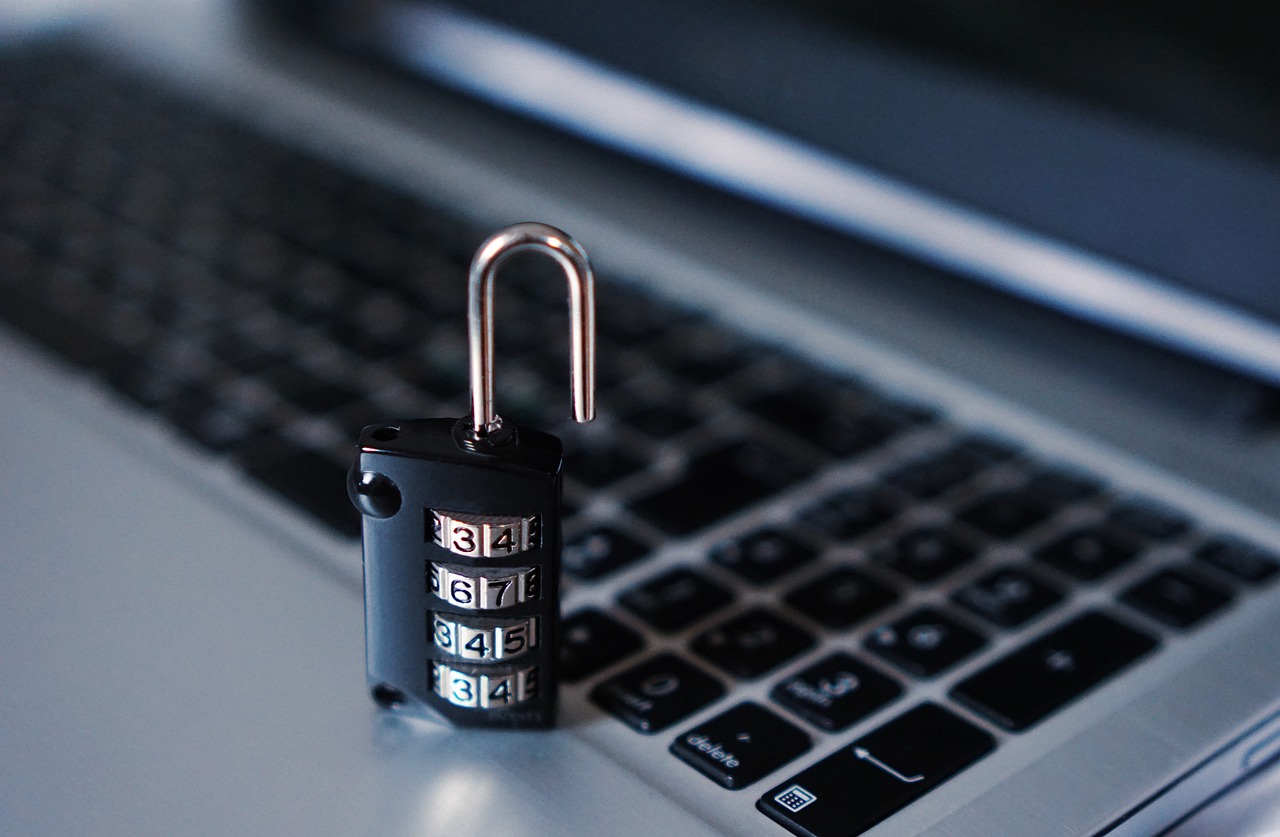
Assessing Security Needs
When it comes to keeping your home safe, understanding your unique security needs is not just important—it's essential. Think of your home as a fortress; each fortress has its own vulnerabilities, and knowing these can make all the difference. Are your windows easily accessible from the ground? Do you have a well-lit entrance? By evaluating your home’s layout and surroundings, you can identify potential weak points that may require extra attention.
Start by conducting a thorough assessment of your property. Walk around your home and take note of areas that might be inviting for an intruder. Consider the following factors:
- Location: Is your home in a high-crime area? Proximity to neighbors can also be a significant factor.
- Entry Points: Count how many doors and windows are accessible from the outside. Are they secure?
- Landscaping: Overgrown bushes or trees can provide cover for intruders. Are there spots where someone could hide?
Once you’ve identified these vulnerabilities, it’s time to think about what kind of security services can address them effectively. For instance, if you have multiple entry points, a comprehensive security system with alarms and monitoring may be necessary. On the other hand, if you live in a relatively safe neighborhood, perhaps a simple alarm system or motion-sensor lights will suffice.
It’s also vital to consider your lifestyle and daily routines. Do you travel frequently? If so, you might want to invest in a service that offers remote monitoring, so you can keep an eye on your home from anywhere in the world. Alternatively, if you’re home most of the time, a basic alarm system may be all you need, coupled with good locks and outdoor lighting.
Another aspect to think about is the specific needs of your family. Do you have young children or elderly family members who may require additional safety measures? For instance, some security systems come with features like panic buttons or emergency alerts that can provide peace of mind. By tailoring your security approach to fit your family’s unique needs, you can create a safer living environment.
In summary, assessing your security needs is a multi-faceted process that involves evaluating your home’s vulnerabilities, considering your lifestyle, and factoring in your family’s specific requirements. This groundwork will set the stage for selecting the right residential security service, ensuring you make an informed decision that effectively protects your property and loved ones.

Types of Security Services
When it comes to safeguarding your home, understanding the various available is crucial. Each service offers unique features and benefits that can be tailored to meet your specific security needs. From monitoring services to alarm systems, the options are vast, and knowing what each entails can help you make an informed decision.
First up, let's talk about monitoring services. These services provide real-time surveillance and rapid response to any incidents that may occur. Imagine having a dedicated team of professionals watching over your home 24/7, ready to take action at a moment's notice. This peace of mind is invaluable, especially when you’re away on vacation or at work. Monitoring services can include various components, such as:
- Video Surveillance: Cameras strategically placed around your property can deter intruders and provide evidence in case of a break-in.
- Alarm Monitoring: In the event of an alarm activation, the monitoring service can alert local authorities immediately.
- Environmental Monitoring: This includes sensors for smoke, carbon monoxide, and water leaks, ensuring comprehensive safety.
Next, we have patrol services. These involve security personnel who patrol your neighborhood or property at regular intervals. The presence of a patrol car or an officer can significantly deter potential intruders. Patrol services often complement monitoring services, providing a physical security layer that can respond quickly to any suspicious activity.
Now, let’s not forget about alarm systems. These systems serve as a critical deterrent against intruders. An alarm system can be as simple as a basic door sensor or as complex as a full-fledged home security system with motion detectors, window sensors, and glass break sensors. The mere sight of a security system can often discourage would-be burglars. Here’s a quick look at some common types of alarm systems:
| Type of Alarm System | Description | Effectiveness |
|---|---|---|
| Monitored Alarm Systems | These systems alert a monitoring center when triggered, allowing for immediate response. | High |
| Unmonitored Alarm Systems | These alarms sound off locally but do not alert a monitoring center. | Moderate |
| Smart Alarm Systems | Integrated with smart home technology, these systems can be controlled remotely via apps. | High |
Each type of alarm system has its own set of advantages, and choosing the right one depends on your specific security needs and budget. Some homeowners prefer the peace of mind that comes with monitored systems, while others may opt for the flexibility of smart alarm systems that integrate with their home automation setups.
In conclusion, the types of security services available today are designed to provide comprehensive protection for your home and loved ones. From monitoring services that keep an eye on your property around the clock to alarm systems that act as a first line of defense, understanding these options allows you to tailor a security solution that fits your lifestyle. The right combination of services can create a robust security framework, giving you the confidence to enjoy your home without worry.
Q: What is the best type of security service for my home?
A: The best type of security service depends on your specific needs. Consider factors like location, property size, and budget when choosing.
Q: How do monitoring services work?
A: Monitoring services typically involve a central station that receives alerts from your security system and can dispatch emergency responders if necessary.
Q: Are alarm systems effective in preventing break-ins?
A: Yes, alarm systems are highly effective deterrents. The presence of an alarm system can significantly reduce the likelihood of a burglary.
Q: What should I look for in a security provider?
A: Look for a provider with a solid reputation, appropriate certifications, and excellent customer service. Reviews and testimonials can be very helpful.

Monitoring Services
When it comes to keeping your home safe, are like having a vigilant watchdog that never sleeps. These services are designed to provide real-time surveillance and immediate response to any suspicious activity. Imagine having a team of professionals watching over your property 24/7, ready to act at a moment's notice. This peace of mind is invaluable, especially for homeowners who may not always be present to keep an eye on things.
Monitoring services typically encompass a variety of features that enhance your home’s security. For instance, they often include:
- Video surveillance: High-definition cameras that provide clear footage of your property.
- Alarm notifications: Instant alerts sent to your phone or email in case of a breach.
- Emergency response: Coordination with local authorities if an incident occurs.
One of the standout aspects of these services is their ability to integrate with modern technology. Many monitoring systems now offer mobile apps that allow homeowners to check their security cameras, receive alerts, and even control their alarm systems from anywhere in the world. This level of accessibility means that whether you’re at work, on vacation, or simply running errands, you can maintain a watchful eye over your home.
Moreover, the effectiveness of monitoring services can be significantly enhanced through 24/7 monitoring. This means that trained professionals are constantly monitoring your property, ready to respond to any emergencies. This continuous vigilance can deter potential intruders who know that someone is always watching. In fact, studies have shown that homes with monitored security systems are less likely to be targeted by burglars.
In addition to traditional monitoring, many services now offer mobile monitoring. This innovative feature allows homeowners to access their security systems remotely via smartphones or tablets. Imagine being able to check your front door camera while you’re halfway across the country! This not only adds convenience but also empowers you to take immediate action if you spot something unusual.
In summary, monitoring services are an essential component of modern residential security. They provide peace of mind, immediate alerts, and a proactive approach to safety that can make all the difference in protecting your home and loved ones. Investing in a reliable monitoring service is like installing a fortress around your home; it’s an investment in safety that pays off in countless ways.
Q: What are the benefits of using a monitoring service?
A: Monitoring services provide real-time surveillance, immediate alerts, and emergency response coordination, which collectively enhance the security of your home.
Q: Can I access my monitoring system remotely?
A: Yes, most modern monitoring services offer mobile applications that allow you to monitor your home from anywhere, giving you peace of mind when you’re away.
Q: How does 24/7 monitoring work?
A: 24/7 monitoring means that trained professionals are constantly watching your property and can respond to incidents immediately, ensuring your home is always protected.
Q: Are monitoring services expensive?
A: Costs can vary widely depending on the provider and the level of service offered. However, many companies offer competitive pricing plans to fit different budgets.
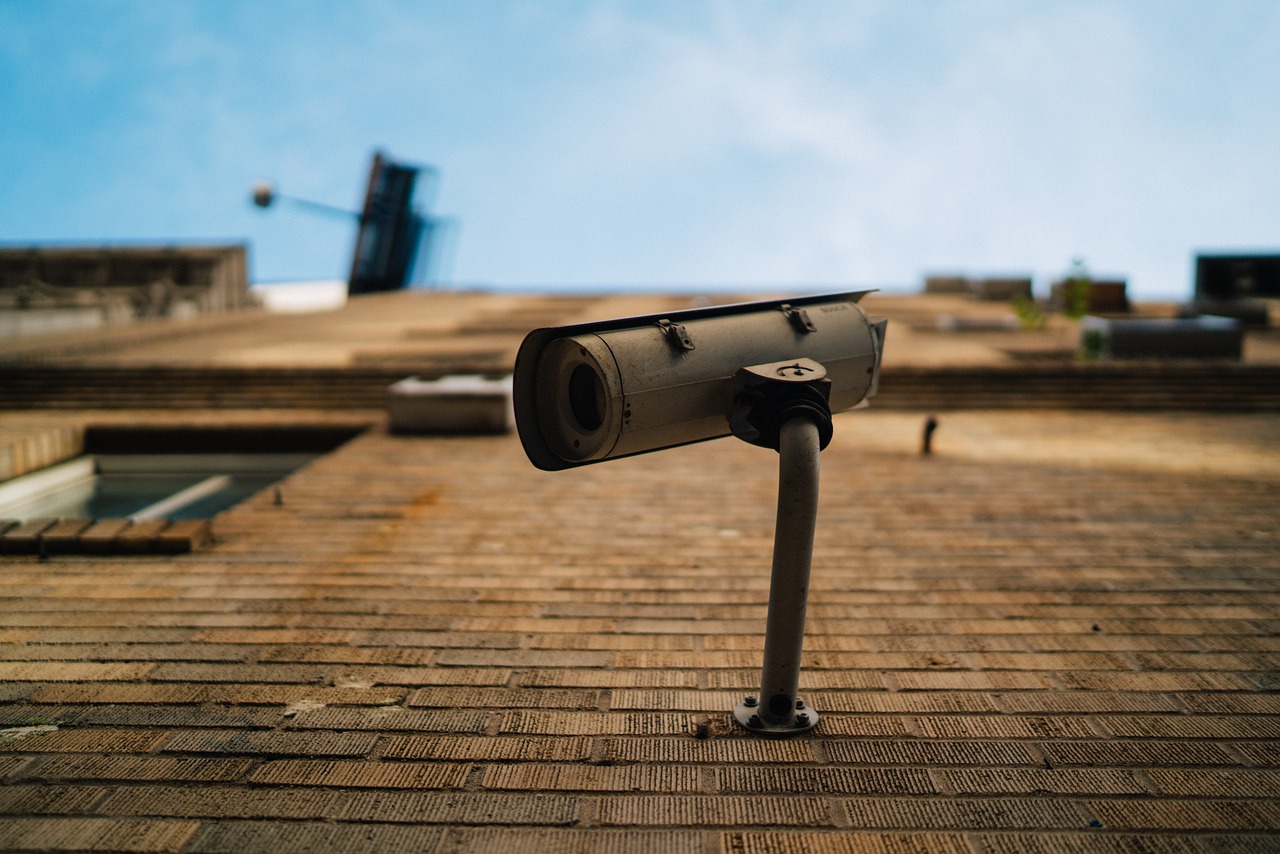
24/7 Monitoring
Imagine you’re cozied up on the couch, binge-watching your favorite series, when suddenly, an alert pops up on your phone. It’s your security system, notifying you of suspicious activity outside your home. This is the power of . With round-the-clock surveillance, your home is safeguarded against potential threats at all hours, giving you peace of mind whether you’re home or away.
24/7 monitoring is not just about having a security system in place; it’s about ensuring that someone is always watching over your property. This service typically includes a team of trained professionals who monitor security cameras, alarms, and sensors in real-time. They are ready to respond immediately to any alerts, which can significantly reduce the response time during an emergency. Think of them as your home’s personal security guards, always on duty, always alert.
Here are some key benefits of 24/7 monitoring:
- Immediate Response: In the event of a break-in or emergency, the monitoring team can alert local authorities right away, ensuring that help is on the way before the intruder has a chance to escape.
- Peace of Mind: Knowing that your home is being monitored around the clock allows you to relax, whether you’re sleeping or enjoying a weekend getaway.
- Deterrent Effect: The mere presence of a monitoring service can deter criminals from attempting to invade your home, as they know that someone is always watching.
Moreover, many modern monitoring services utilize advanced technology to enhance their capabilities. For instance, they may use AI-powered analytics to detect unusual patterns or behaviors, ensuring that even the smallest anomalies are investigated. This proactive approach can mean the difference between a minor incident and a major security breach.
In addition to traditional monitoring, many services offer mobile apps that allow you to check in on your home from anywhere. Imagine being on vacation and receiving real-time updates about your property. With 24/7 monitoring, you can access live feeds from your cameras, receive alerts, and even communicate with the monitoring team directly from your smartphone. This level of connectivity not only enhances security but also empowers you to take control of your home’s safety.
Investing in a 24/7 monitoring service is like having a safety net that catches you before you fall. It’s an essential component of a comprehensive security strategy that ensures your home and loved ones are always protected. So, when considering your options for residential security, remember that constant vigilance is key, and 24/7 monitoring may just be the best decision you ever make for your peace of mind.
- What is 24/7 monitoring? - It’s a security service that provides continuous surveillance of your property, ensuring immediate response to any incidents.
- How does 24/7 monitoring work? - Trained professionals monitor security systems in real-time, ready to alert authorities if necessary.
- Can I access my security system remotely? - Yes, most modern monitoring services offer mobile apps for remote access to your security feeds and alerts.
- Is 24/7 monitoring worth the cost? - Given the peace of mind and added security it provides, many homeowners find it to be a valuable investment.

Mobile Monitoring
Imagine having the power to keep an eye on your home, no matter where you are—whether you're at work, on vacation, or just out for a quick errand. makes this a reality, providing homeowners with a sense of security and peace of mind that was once only a dream. With the advent of technology, mobile monitoring solutions have become increasingly popular, allowing you to access your security system through your smartphone or tablet. This means that you can check in on your property, receive alerts, and even control various security features right from your pocket.
So, how does it work? Most mobile monitoring systems connect to your home’s security devices, such as cameras, alarms, and motion detectors. Once set up, you can download an app that allows you to view live feeds from your cameras, receive real-time notifications about any suspicious activity, and even interact with your system remotely. This level of control is not just convenient; it’s a game-changer for homeowners who want to stay connected to their security systems at all times.
Here are some of the key benefits of mobile monitoring:
- Real-Time Alerts: Receive instant notifications if your alarm is triggered or if unusual activity is detected, allowing you to respond quickly.
- Remote Access: Monitor your home from anywhere in the world, providing peace of mind while you’re away.
- Control Features: Arm or disarm your security system, lock or unlock doors, and manage other devices directly from your smartphone.
- Video Surveillance: Access live video feeds and recorded footage, helping you keep track of what’s happening at home.
Furthermore, mobile monitoring can significantly enhance your overall security strategy. With the ability to monitor your home in real-time, you can quickly assess situations and take appropriate action, whether that means contacting authorities or checking in with a neighbor. It's like having a security guard in your pocket, ready to help whenever you need it. The integration of mobile technology into residential security systems is not just a trend; it's a fundamental shift in how we think about home safety.
In conclusion, mobile monitoring is an essential component of modern residential security services. It empowers homeowners to stay connected and informed, ensuring that they can protect their property and loved ones effectively. As technology continues to evolve, the possibilities for mobile monitoring will only expand, making it an indispensable tool for anyone looking to enhance their home security.
- What devices are compatible with mobile monitoring? Most modern security systems are designed to work with smartphones and tablets, and many offer dedicated apps for iOS and Android.
- Can I access my security system remotely? Yes, mobile monitoring allows you to access your security system from anywhere with an internet connection.
- Are there additional costs for mobile monitoring services? Some providers may charge a fee for mobile access, so it's important to check with your security service provider for specific details.
- Is mobile monitoring secure? Most reputable security services use encryption and other security measures to protect your data and privacy while using mobile monitoring.

Alarm Systems
When it comes to securing your home, play a pivotal role. Think of them as the vigilant sentinels of your property, always on guard and ready to sound the alarm at the first hint of trouble. These systems are not just about making noise; they are about creating a robust line of defense against potential intruders. But with so many options available, how do you choose the right one for your needs?
First off, it's essential to understand the different types of alarm systems available. You have your monitored systems, where a professional monitoring service keeps an eye on your home 24/7, ready to dispatch authorities if needed. Then there are unmonitored systems, which rely on loud sirens to alert you and your neighbors but do not contact emergency services automatically. Each type has its pros and cons, and your choice will depend on your specific security needs and budget.
Another critical aspect to consider is the effectiveness of alarm systems as a deterrent. Research shows that homes with visible alarm systems are less likely to be targeted by burglars. It's like putting a big "Do Not Enter" sign on your property. Intruders are often looking for easy targets, and a well-placed alarm system can make your home less appealing. In fact, a study by the University of North Carolina found that 60% of convicted burglars said they would avoid homes with security systems.
Moreover, modern alarm systems come with a plethora of features that enhance their effectiveness. Many systems now include smart technology, allowing you to control and monitor your alarm remotely via smartphone apps. Imagine being able to check your home’s security while lounging on a beach vacation! Additionally, some systems can integrate with other smart home devices, creating a comprehensive security network that can include cameras, smart locks, and motion detectors.
To help you navigate the various options, here's a quick comparison of common types of alarm systems:
| Type of Alarm System | Monitored | Unmonitored |
|---|---|---|
| Response Time | Immediate response from authorities | Depends on neighbors or self-response |
| Monthly Fees | Yes, for monitoring service | No |
| Installation | Professional installation recommended | DIY options available |
| Peace of Mind | High, knowing professionals are monitoring | Variable, relies on personal vigilance |
In conclusion, alarm systems are a fundamental component of any residential security strategy. They not only deter potential intruders but also provide peace of mind for homeowners. By carefully evaluating your needs and considering the features and types of alarm systems available, you can make an informed decision that best protects your home and loved ones.
- What is the best type of alarm system for my home? The best type depends on your specific needs, budget, and whether you prefer monitored or unmonitored systems.
- Are smart alarm systems worth the investment? Yes, they offer convenience and enhanced security features that can provide significant peace of mind.
- How often should I test my alarm system? It's recommended to test your alarm system at least once a month to ensure it's functioning correctly.

Evaluating Security Providers
When it comes to choosing a security provider for your home, the decision can feel overwhelming. With so many options out there, how do you know which one is the right fit for you? The first step is to evaluate potential security companies based on key factors that will impact your overall satisfaction and safety. After all, you’re not just hiring a service; you’re entrusting them with the protection of your loved ones and property.
One of the most critical aspects to consider is the provider's reputation. A company that has a solid track record and positive reviews from customers can give you peace of mind. But how do you find trustworthy feedback? Start by searching for online reviews on platforms like Google, Yelp, or even social media. Look for patterns in the feedback—do customers rave about their service, or are there consistent complaints? This can provide valuable insight into what you can expect.
Another essential factor is the certifications and licenses that a security provider holds. These credentials not only indicate that the company adheres to industry standards, but they also reflect a level of professionalism and commitment to quality. Make sure to ask potential providers about their licenses and any relevant certifications they possess. A reputable company will be more than willing to share this information with you.
When evaluating security providers, consider their customer service as well. Responsive and attentive service can make a world of difference, especially during emergencies. Ask yourself: How does the company handle inquiries? Are they available 24/7? A company that prioritizes customer support will be there for you when you need them most, providing reassurance that help is just a call away.
To help you in your decision-making process, here’s a quick comparison table of factors to consider when evaluating security providers:
| Factor | Importance | What to Look For |
|---|---|---|
| Reputation | High | Positive reviews, testimonials |
| Certifications | Medium | Valid licenses, industry certifications |
| Customer Service | High | 24/7 availability, responsiveness |
| Experience | Medium | Years in business, expertise |
Ultimately, the goal is to find a security provider that not only meets your needs but also aligns with your values. Take your time during this evaluation process; after all, this is about ensuring the safety and well-being of your home and family. By focusing on reputation, certifications, customer service, and experience, you'll be well on your way to making an informed choice that can provide you with the peace of mind you deserve.
Here are some common questions homeowners have when evaluating security providers:
- What should I prioritize when choosing a security provider? Focus on reputation, customer service, and industry certifications.
- How can I verify a company's reputation? Look for online reviews, testimonials, and ask for references from past clients.
- Are certifications really important? Yes, they indicate that the company meets industry standards and regulations.
- What kind of customer support should I expect? Look for providers that offer 24/7 support and quick response times.
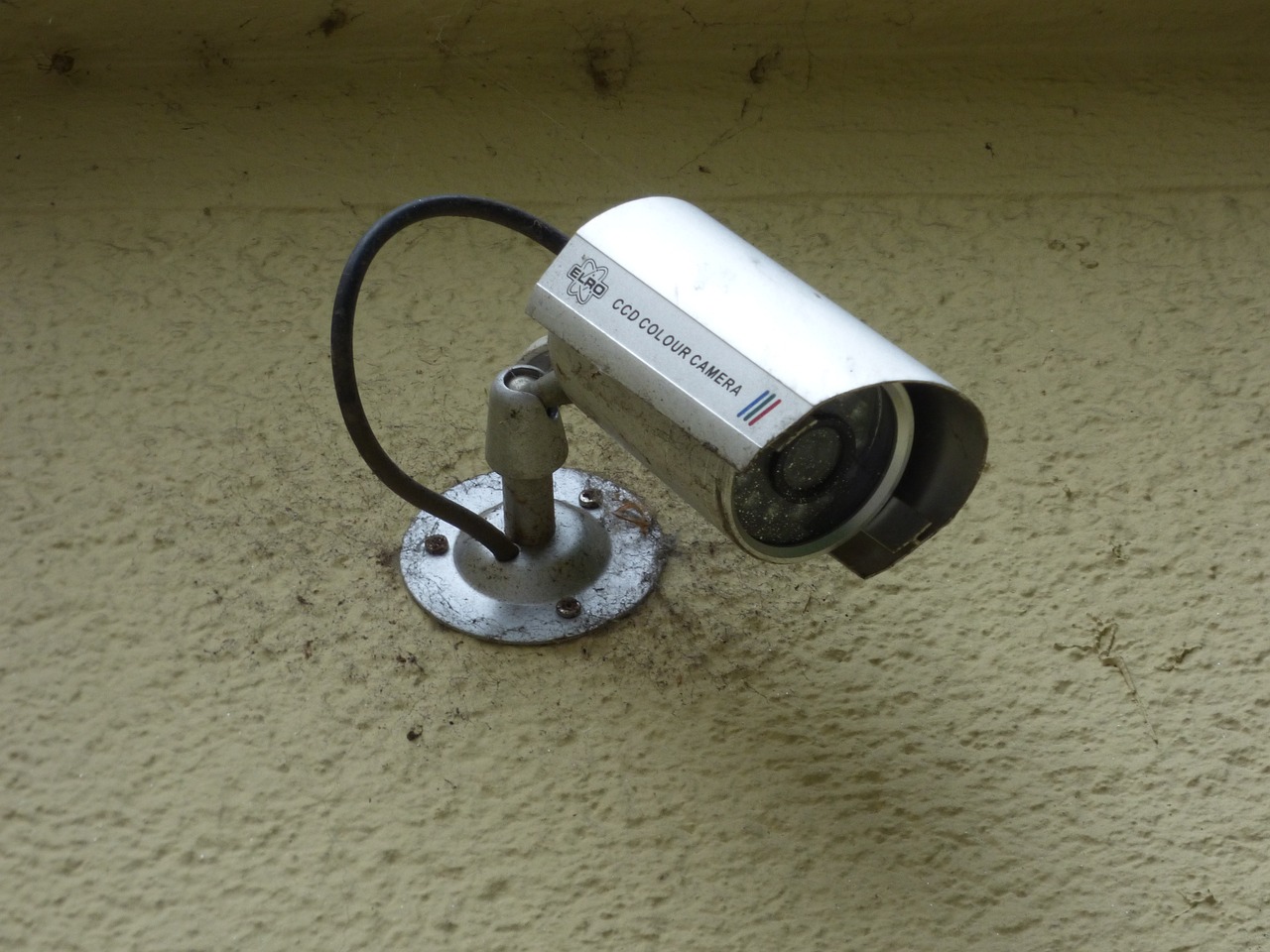
Reputation and Reviews
When it comes to selecting a residential security service, one of the most critical factors to consider is the reputation of the provider. After all, you’re entrusting them with the safety of your home and loved ones. So, how can you ensure that you’re making the right choice? The first step is to dive deep into customer reviews and testimonials. These can provide invaluable insights into the experiences of other homeowners who have utilized the services you’re considering. Look for patterns in feedback; are there recurring praises or complaints? This can help you gauge the overall reliability and effectiveness of the company.
Moreover, it’s essential to check multiple sources for reviews. Websites like Yelp, Google Maps, and Better Business Bureau can offer a broad spectrum of opinions. Additionally, don’t shy away from asking your friends or family for recommendations. Personal experiences often carry more weight than anonymous online reviews.
Another aspect to consider is the age of the company. A provider that has been in the industry for a long time likely has a track record that speaks for itself. However, newer companies can also offer innovative solutions and competitive pricing, so don’t dismiss them outright. Instead, evaluate their credentials and how they compare to more established firms in terms of service quality.
To make your research easier, consider creating a simple comparison table to track the reputation and reviews of different providers. Here’s a sample layout:
| Provider Name | Rating (out of 5) | Number of Reviews | Key Comments |
|---|---|---|---|
| SecureHome | 4.5 | 150 | Excellent customer service and fast response times. |
| SafeGuard | 3.8 | 80 | Good systems but slow installation process. |
| HomeShield | 4.2 | 200 | Reliable and comprehensive monitoring services. |
In conclusion, taking the time to research the reputation and reviews of potential security providers can save you from future headaches. A little effort in this area can go a long way in ensuring that you choose a service that not only meets your needs but exceeds your expectations. Remember, in the world of security, trust is paramount, and informed decisions are your best defense.
- How do I find reliable reviews for security services? Look for reviews on reputable sites like Yelp, Google, and the BBB.
- Should I trust online reviews? While online reviews can be helpful, it's best to consider them alongside personal recommendations.
- What if a company has mixed reviews? Analyze the comments for common themes and weigh them against your specific needs.

Certifications and Licenses
When it comes to selecting a residential security service, one of the most critical aspects to consider is the held by the provider. These credentials are not just fancy pieces of paper; they signify that the company adheres to industry standards and regulations, ensuring a level of professionalism that you can trust. Imagine hiring a contractor to build your dream home—wouldn't you want to see their qualifications first? The same principle applies here.
Security providers should possess various certifications that demonstrate their expertise and commitment to safety. Some of the most recognized certifications include:
- Certified Protection Professional (CPP): This certification is awarded by ASIS International and indicates a high level of knowledge in security management.
- Physical Security Professional (PSP): Also from ASIS International, this certification focuses on physical security assessments, application, and integration of physical security systems.
- Electronic Security Technician (EST): This credential shows proficiency in installing and maintaining electronic security systems.
In addition to these certifications, it's crucial to verify that the security service is licensed in your state or region. Licensing requirements can vary significantly, so always check if the provider is compliant with local laws. A licensed security company will typically undergo background checks and meet specific training requirements, which adds an extra layer of confidence for homeowners.
Furthermore, consider asking potential providers about their ongoing training programs. The security landscape is continually evolving with advancements in technology and methods employed by criminals. A reputable company will invest in the continuous education of its staff to stay updated on the latest security trends and best practices. This commitment can directly impact the effectiveness of the security solutions they offer.
In summary, when evaluating a residential security service, don't overlook the importance of certifications and licenses. These credentials are not just formalities; they are indicators of a company's reliability and dedication to providing top-notch security solutions. By choosing a provider with the right qualifications, you're not just investing in a service; you're investing in peace of mind for you and your family.
Q: Why are certifications important for a security service?
A: Certifications indicate that a security provider meets industry standards and possesses the necessary expertise to protect your home effectively.
Q: How can I verify if a security company is licensed?
A: You can usually check a security provider's licensing status through your state's regulatory agency or by asking the company directly for proof of their license.
Q: What types of training do security professionals undergo?
A: Security professionals often undergo training in areas such as surveillance, emergency response, and the installation of security systems. Ongoing education is also important to keep them updated on the latest techniques and technologies.

Cost Considerations
When it comes to securing your home, understanding the is just as important as knowing the types of services available. After all, you want to ensure that you're getting the best bang for your buck while keeping your loved ones safe. So, what factors should you keep in mind when budgeting for a residential security service? Let’s break it down.
First off, it’s essential to recognize that the cost of security services can vary widely based on several factors. These include the type of security systems you choose, the level of monitoring you require, and any additional features you might want, such as smart home integration. For instance, a basic alarm system may cost significantly less than a comprehensive package that includes 24/7 monitoring, mobile access, and smart home capabilities.
One of the primary elements influencing the cost is the type of service you opt for. Here’s a quick overview:
| Service Type | Average Cost | Benefits |
|---|---|---|
| Basic Alarm System | $200 - $500 | Deterrent against intruders |
| Monitoring Services | $30 - $60/month | Real-time alerts and emergency response |
| Smart Home Integration | $300 - $1,000+ | Convenience and enhanced security |
Next, it’s crucial to compare quotes from different providers. This not only helps you gauge the average costs in your area but also allows you to see what services are included in each package. When comparing quotes, consider the following:
- Monthly Fees: Are there any hidden fees?
- Contract Length: Is it a long-term commitment?
- Service Level: What kind of monitoring and support do they provide?
While it may be tempting to go for the cheapest option, remember that long-term value is essential. Investing in a quality security system can save you money in the long run by preventing potential losses from theft or damage. Think of it as a safety net; a small investment today can protect your home and family from significant financial loss tomorrow.
Lastly, don’t forget to factor in the costs of ongoing maintenance. Just like any other system in your home, security systems require regular checks and updates to function optimally. Some companies include maintenance in their service contracts, while others charge separately. It’s worth asking about this upfront to avoid any surprises down the line.
In summary, when considering the costs associated with residential security services, take the time to evaluate your needs, compare quotes, and think about the long-term benefits of your investment. After all, peace of mind is priceless!
Here are some common questions homeowners have when it comes to the cost of residential security services:
- What is the average cost of a security system? The average cost can range from $200 for a basic system to $1,000 or more for advanced features.
- Are monitoring services worth the cost? Yes, monitoring services provide real-time alerts and can significantly enhance your home’s security.
- How often should I maintain my security system? Regular maintenance is recommended at least once a year to ensure your system is functioning correctly.
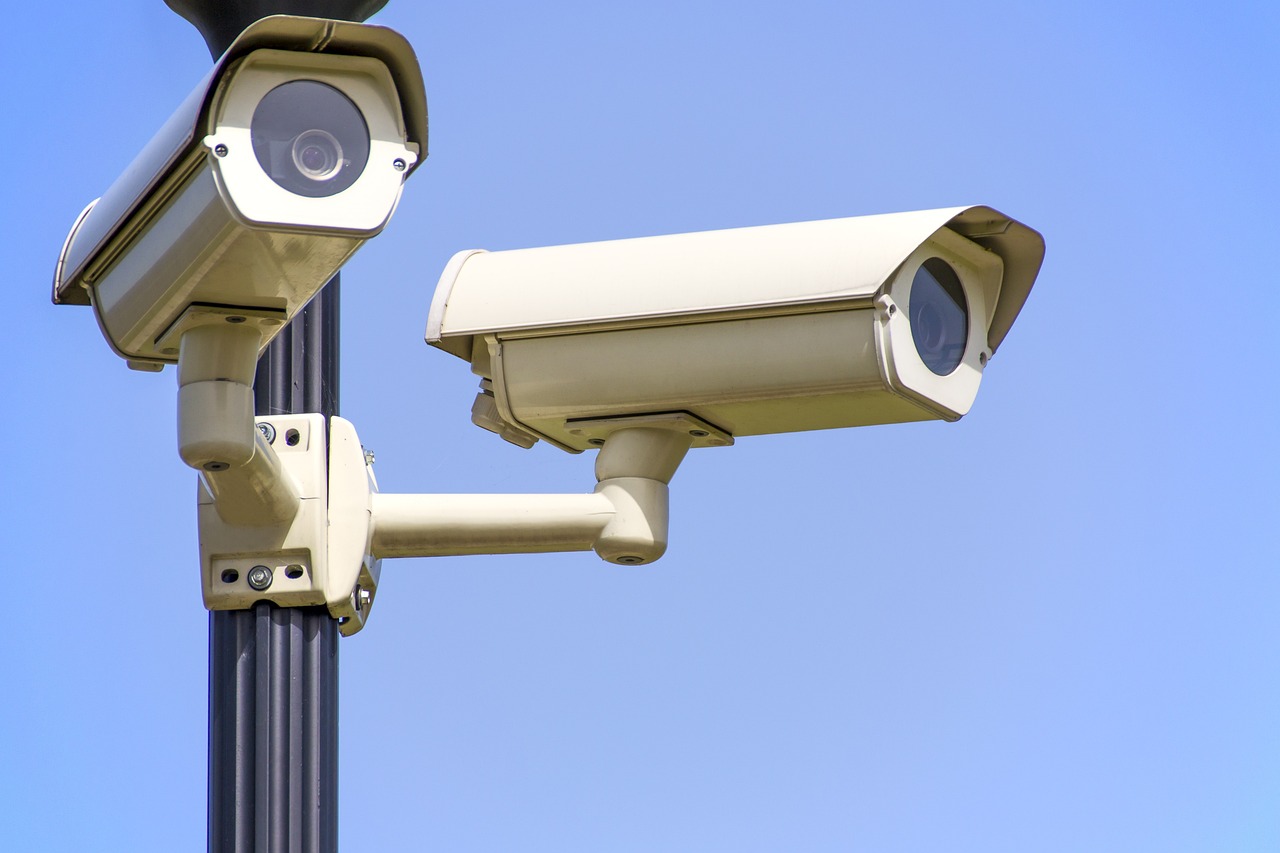
Comparing Quotes
When it comes to securing your home, one of the most important steps is from various security service providers. It's not just about finding the cheapest option; it's about understanding what you're paying for and ensuring that you get the best value for your investment. Think of it like shopping for a new car. You wouldn’t just pick the first one you see, right? You’d compare features, safety ratings, and prices to make an informed decision. The same principle applies here.
Start by gathering quotes from at least three different companies. This will give you a solid foundation for comparison. When you receive these quotes, don’t just look at the bottom line. Instead, break down each quote into its components. What services are included? Are there any hidden fees? For instance, some companies might offer a low initial price but charge extra for installation or monitoring services. To help you with this, consider creating a simple comparison table like the one below:
| Provider | Monthly Fee | Installation Cost | Included Services | Contract Length |
|---|---|---|---|---|
| Provider A | $29.99 | $99 | 24/7 Monitoring, Alarm System | 2 years |
| Provider B | $34.99 | $49 | 24/7 Monitoring, Smart Home Integration | 1 year |
| Provider C | $24.99 | $150 | Alarm System, Mobile Monitoring | 3 years |
As you can see, this table allows you to quickly visualize the differences between providers. Pay special attention to the included services. A lower monthly fee might seem appealing, but if it comes with fewer features or less reliable service, it may not be worth it. Additionally, consider the contract length. Some providers may lock you into a longer contract, which could be a dealbreaker if you're looking for flexibility.
Another key factor to consider when comparing quotes is the quality of service. Look for customer reviews and testimonials. A provider might have a great price, but if their customer service is lacking or if clients report issues with their systems, it could lead to frustration down the line. Don't hesitate to reach out to current customers to get a feel for their experiences. After all, you want a provider that not only meets your budget but also offers peace of mind.
Lastly, don't be afraid to negotiate. Many security companies are willing to work with you on pricing, especially if you can show them a competitive quote from another provider. Think of it as a friendly bargaining game; after all, you're investing in your family's safety, and every dollar counts!
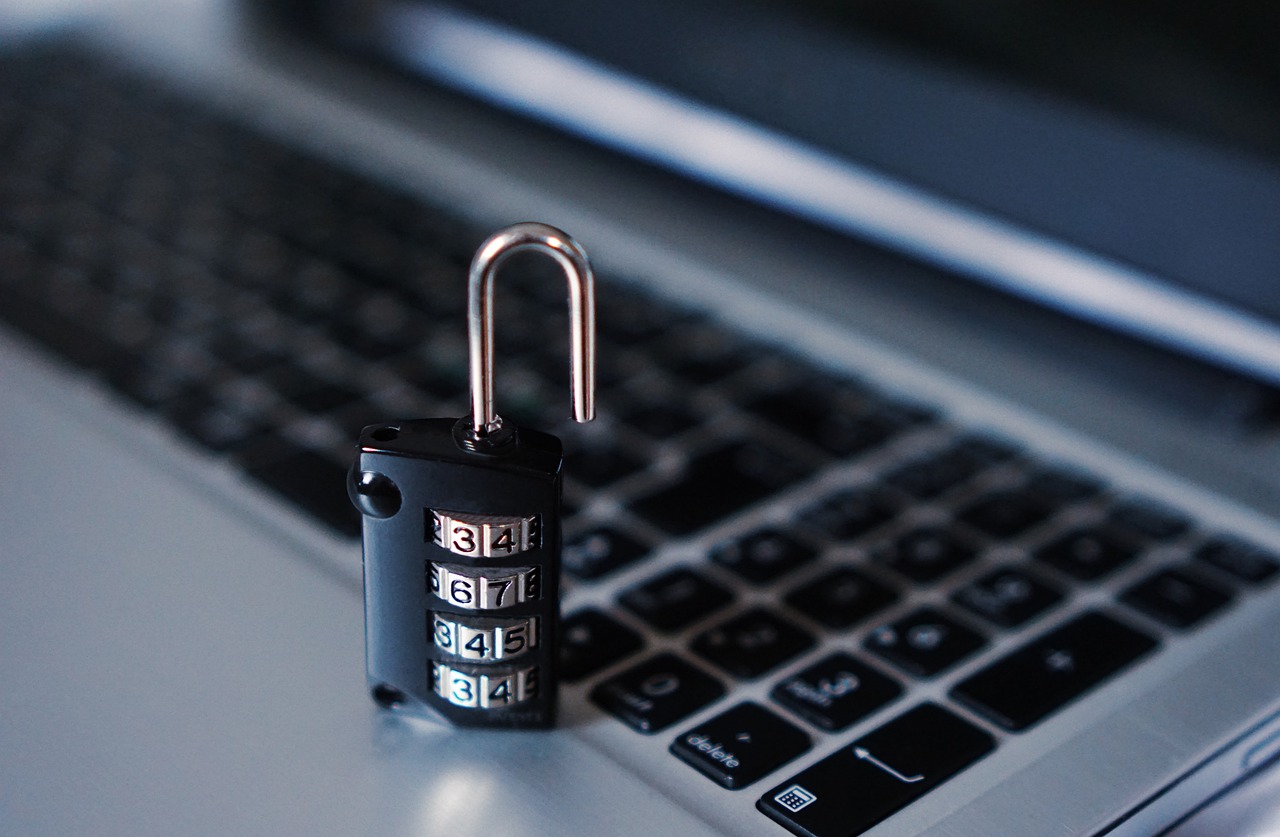
Long-term Value
When it comes to investing in a residential security service, understanding the is crucial. Many homeowners get caught up in the initial costs, often overlooking the benefits that come with a quality security system over time. Think of it like purchasing a good pair of shoes; while you might pay more upfront, the durability and comfort you gain can save you money in the long run. Investing in a robust security solution not only protects your property but also provides peace of mind that is invaluable.
One of the most significant advantages of a quality security system is the potential reduction in insurance premiums. Many insurance companies offer discounts for homes equipped with comprehensive security measures, which can offset the initial investment. For instance, if your insurance premium is reduced by 10% due to your security system, this can lead to substantial savings over several years. Here's a quick breakdown of how that might look:
| Year | Annual Insurance Premium | 10% Discount | Net Savings |
|---|---|---|---|
| 1 | $1,000 | $100 | $100 |
| 2 | $1,000 | $100 | $200 |
| 3 | $1,000 | $100 | $300 |
| 4 | $1,000 | $100 | $400 |
| 5 | $1,000 | $100 | $500 |
As you can see, over five years, just from the insurance discounts alone, you could save up to $500. This savings can be reinvested into maintaining and upgrading your security system, ensuring that it remains effective against evolving threats.
Moreover, the long-term benefits extend beyond financial savings. A well-secured home can enhance your property value. Potential buyers are often more inclined to invest in a home that has an established security system. It’s like having a well-kept garden; it not only beautifies your home but also increases its market appeal. In a competitive real estate market, having a security system can be a deciding factor for many buyers, giving you an edge when it comes time to sell.
In conclusion, while the initial costs of a residential security service may seem daunting, the it provides can be substantial. From insurance savings to increased property value, investing in a quality security system is not just about immediate protection—it's about securing your future.
- What should I look for in a security system? Look for features such as 24/7 monitoring, mobile access, and alarm systems that cater to your specific needs.
- Are security systems worth the investment? Yes, they provide peace of mind, potential insurance savings, and can increase your home’s value.
- How often should I maintain my security system? Regular maintenance is recommended at least once a year to ensure everything is functioning optimally.
- Can I monitor my security system remotely? Many modern systems offer mobile apps that allow you to monitor your property from anywhere.
- What if my alarm goes off accidentally? Most systems have protocols in place for false alarms, and it’s important to familiarize yourself with these procedures.

Technology Integration
In today's fast-paced world, the integration of technology into residential security services has become not just a luxury but a necessity. Homeowners are increasingly looking for ways to enhance their security systems with the latest innovations, making their homes safer and more convenient. The advent of smart home technology has revolutionized how we think about security, providing us with tools that allow us to monitor and control our properties remotely. But what exactly does this mean for you as a homeowner?
Imagine being able to lock your front door from your office or receive alerts on your smartphone when someone approaches your home. This level of control and awareness can be achieved through various smart home features that are now commonplace in modern security systems. These features often include:
- Smart Locks: These allow you to control access to your home through your smartphone, eliminating the need for traditional keys.
- Smart Cameras: With these, you can monitor live feeds from your home, ensuring you can keep an eye on things even when you're not there.
- Smart Sensors: These detect motion or changes in your home environment, alerting you to potential intrusions or emergencies.
Moreover, the integration of remote access technology means that homeowners can manage their security systems from virtually anywhere. Whether you're on vacation or simply at work, you can check the status of your home, receive notifications, and even interact with visitors through two-way communication systems. This level of connectivity not only provides peace of mind but also enhances the overall safety of your residence.
To illustrate the impact of technology integration in residential security, consider the following table that compares traditional security systems with modern, tech-driven solutions:
| Feature | Traditional Security Systems | Modern Smart Security Systems |
|---|---|---|
| Remote Monitoring | No | Yes, via mobile apps |
| Real-Time Alerts | Limited | Instant notifications |
| Smart Home Integration | No | Yes, with other smart devices |
| Emergency Response | Manual | Automated |
As you can see, the shift towards technology integration in security services offers numerous advantages. Not only do these modern systems provide enhanced security features, but they also offer a level of convenience that traditional systems simply can't match. So, if you're considering upgrading your home security, think about how technology can play a vital role in keeping your loved ones safe.
1. What are the benefits of integrating technology into my home security system?
Integrating technology provides enhanced monitoring, real-time alerts, and remote access, allowing you to manage your security from anywhere.
2. Can I control my security system remotely?
Yes, most modern security systems offer mobile apps that allow you to monitor and control your system from your smartphone or tablet.
3. Are smart security systems easy to install?
Many smart security systems are designed for easy DIY installation, but professional installation is also available for those who prefer it.
4. How can I ensure my smart security system is secure?
To ensure your system is secure, use strong passwords, enable two-factor authentication, and keep your software updated.
5. What happens if my internet goes down?
Most smart security systems have backup options, such as cellular connections, to maintain functionality even if your internet is unavailable.
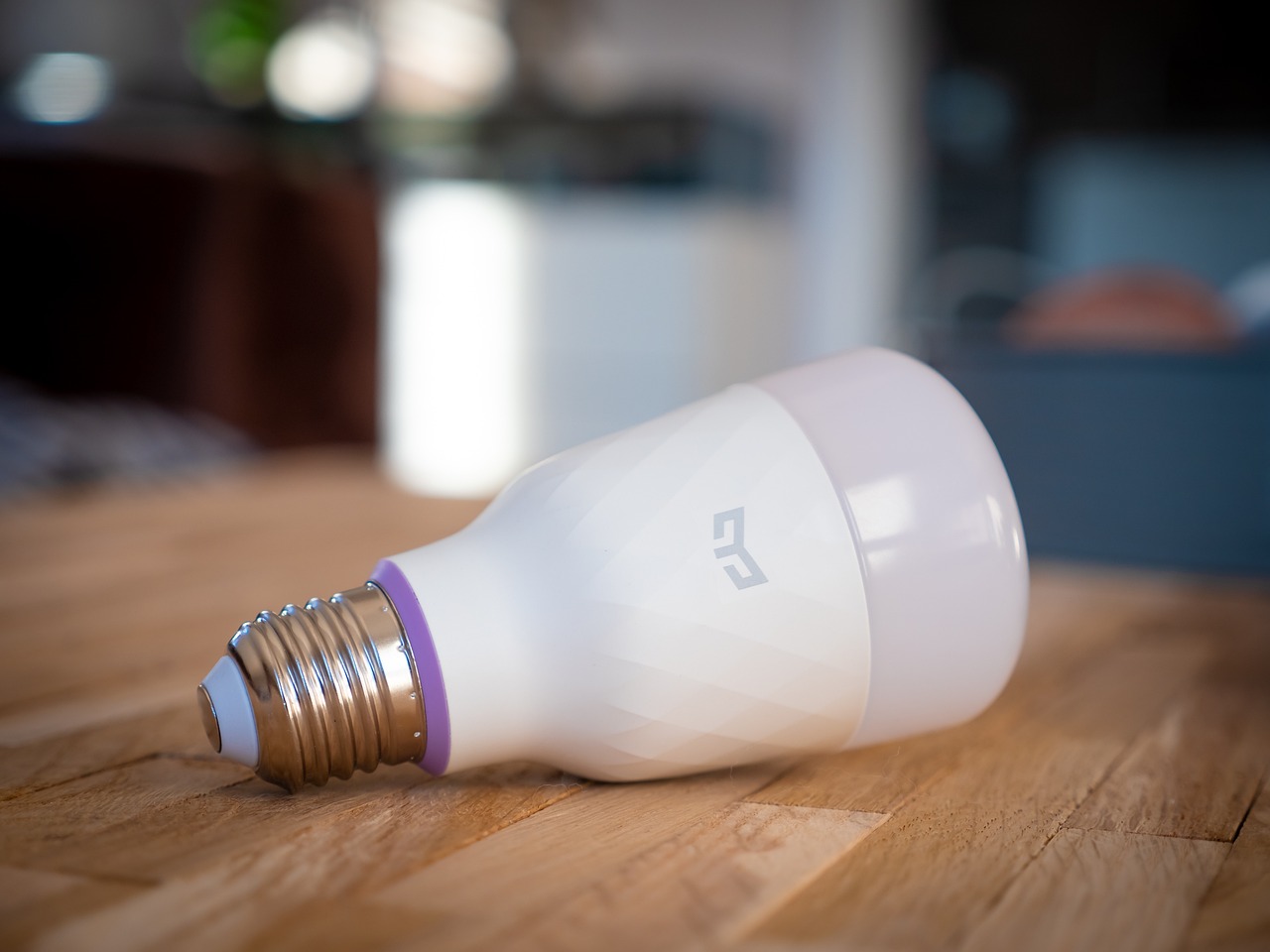
Smart Home Features
In today's fast-paced world, the concept of a smart home has transitioned from a futuristic dream to a tangible reality, especially when it comes to enhancing residential security. Imagine being able to control your home’s security system from the palm of your hand, no matter where you are! Smart home features not only offer convenience but also provide an added layer of protection for your property and loved ones. With a plethora of options available, homeowners can customize their security systems to fit their unique needs.
One of the most popular smart home features is the smart lock. These locks allow you to control access to your home remotely. You can lock or unlock your doors using a mobile app, and some models even allow you to grant temporary access to guests or service providers. This means you no longer have to worry about hiding spare keys under the doormat or in a flower pot! Instead, you can provide access without being physically present, which is especially useful for those last-minute visitors.
Another exciting feature is the integration of smart cameras. These devices not only record footage but also send real-time notifications to your phone when they detect movement. Imagine being at work and receiving an alert that someone is at your front door. With smart cameras, you can view the live feed and even communicate with the visitor through two-way audio. This level of interaction can deter potential intruders and give you peace of mind, knowing you can monitor your home at all times.
Moreover, many smart security systems offer automated lighting features. You can schedule lights to turn on and off at specific times, creating the illusion that someone is home even when you're away. This simple trick can significantly reduce the likelihood of a break-in, as it makes your home appear occupied. Additionally, some systems can be integrated with motion sensors to automatically illuminate pathways or entry points when someone approaches, enhancing safety during the night.
To sum it up, the integration of smart home features into residential security systems not only provides convenience but also empowers homeowners to take control of their security like never before. The ability to monitor, control, and respond to security threats remotely ensures that your home remains a safe haven. As technology continues to evolve, the possibilities for enhancing home security through smart devices are virtually endless.
- What are smart home features? Smart home features refer to devices and systems that allow homeowners to control and monitor their home remotely, enhancing convenience and security.
- How do smart locks work? Smart locks can be controlled via a mobile app, allowing you to lock or unlock your doors from anywhere. Some models also allow for temporary access codes for guests.
- Are smart cameras worth it? Yes, smart cameras provide real-time surveillance and alerts, allowing homeowners to monitor their property and deter potential intruders.
- Can I integrate smart features with existing security systems? Many modern smart home devices are designed to be compatible with existing security systems, allowing for seamless integration.

Remote Access
In today's fast-paced world, the ability to monitor your home from anywhere is not just a luxury; it's a necessity. Imagine being at work, on vacation, or even just out for dinner, and having the power to check in on your property at a moment's notice. This is where comes into play, transforming traditional security systems into modern, user-friendly solutions. With remote access, homeowners can utilize mobile apps and cloud-based systems that allow them to view live feeds from security cameras, receive alerts, and even control their alarm systems from the palm of their hand.
So, how does this technology work? Essentially, remote access systems connect your security devices to the internet, enabling you to access them through your smartphone or tablet. This connectivity not only provides peace of mind but also enhances your ability to respond to potential threats. For example, if your security camera detects motion, you’ll receive an instant notification, allowing you to take immediate action, whether that’s alerting the authorities or simply checking the live feed to see what's happening.
Moreover, remote access is about more than just monitoring. It empowers you to interact with your home security system in real-time. Here are a few key features that make remote access indispensable:
- Live Video Streaming: View live footage from your security cameras anytime, anywhere.
- Two-Way Audio: Communicate with anyone on your property through your security system.
- Instant Alerts: Receive notifications for unusual activities or system breaches.
- Remote Control: Arm or disarm your security system remotely, adjusting settings as needed.
Security systems with remote access also often integrate with smart home devices, allowing for a more cohesive security strategy. For instance, you can lock your doors, turn on lights, or even adjust your thermostat, all from the same app. This level of integration not only enhances security but also adds convenience to your daily life. Imagine coming home to a well-lit house with the doors securely locked, all set up through your smartphone while you were still at work!
However, while the benefits of remote access are clear, it's essential to choose a provider that prioritizes security and privacy. Look for systems that use strong encryption and have a solid reputation for protecting user data. After all, the last thing you want is to compromise your home's security by using a system that is vulnerable to hacking.
In conclusion, remote access is a game-changer in the realm of residential security. It offers homeowners unprecedented control and peace of mind, allowing them to keep an eye on their property, no matter where they are. As technology continues to evolve, integrating remote access into your security strategy will not only make your home safer but also more efficient and convenient.
Q1: What is remote access in home security?
Remote access allows homeowners to monitor and control their security systems from anywhere using a smartphone or tablet.
Q2: How does remote access work?
Remote access systems connect your security devices to the internet, enabling you to access them through mobile applications.
Q3: Is remote access secure?
Yes, but it's crucial to choose a provider that employs strong encryption and has a good reputation for protecting user data.
Q4: Can I control my home security system remotely?
Absolutely! Remote access allows you to arm or disarm your system, view live feeds, and receive alerts from anywhere.

Customer Support and Service
When it comes to residential security services, customer support and service are just as important as the technology and equipment used. After all, what good is a high-tech security system if you can't get help when you need it? A reliable security provider should offer exceptional customer support, ensuring that homeowners feel secure not only in their homes but also in their choice of service. Imagine having a safety net that you can rely on at any hour of the day or night. That's what good customer support provides!
One of the most critical aspects of customer service in the security industry is responsiveness. Homeowners should look for companies that promise quick response times, especially during emergencies. When a security alarm goes off, every second counts. A provider that has a reputation for swift action can make a world of difference in a crisis. Additionally, effective communication is key. The best security services will have clear protocols in place to keep you informed during an emergency, ensuring that you're never left in the dark.
Moreover, ongoing support is essential. Security systems require regular maintenance to function optimally. This means that your provider should offer routine checks and updates, ensuring that your system is always in top shape. Think of it like taking your car in for regular service; it helps prevent bigger issues down the line. A good security provider will not only install your system but will also be there for you long after the installation is complete.
To help you understand the importance of customer support, consider the following key features you should look for:
- 24/7 Availability: Ensure that the customer service team is available around the clock to address any issues or concerns.
- Emergency Response Protocols: Understand how the security provider handles emergencies and what steps they take to ensure your safety.
- Technical Support: Make sure they offer technical assistance for troubleshooting and system updates.
- Regular Maintenance Services: Confirm that the provider offers routine checks and maintenance to keep your system running smoothly.
In summary, when choosing a residential security service, don't just focus on the technology; also consider the customer support and service that will be available to you. A company that prioritizes your safety and satisfaction will not only install a system but will also offer peace of mind, knowing that help is just a call away.
Here are some common questions homeowners have regarding customer support and service in residential security:
- What should I do if my alarm goes off? - Contact your security provider immediately to report the incident and follow their emergency protocols.
- How often should my security system be maintained? - It’s recommended to have your system checked at least once a year, but more frequent checks may be necessary depending on usage.
- Can I reach customer support at any time? - Look for a provider that offers 24/7 customer support for urgent issues.
- What kind of technical support is available? - Most providers offer phone and online support for troubleshooting and system updates.
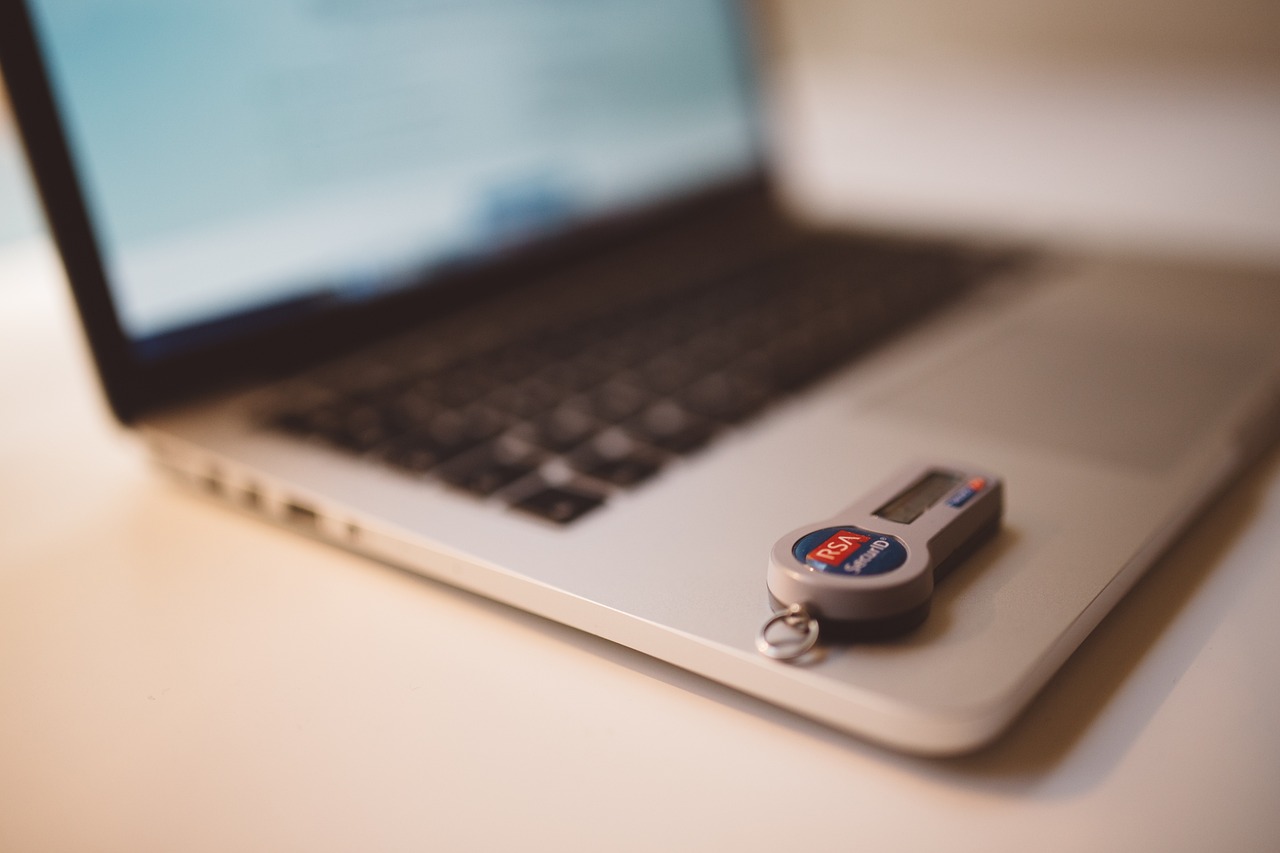
Emergency Response
When it comes to home security, understanding a provider’s emergency response protocols is not just important—it’s essential. Imagine this scenario: you’re at work, and you receive a notification that your security system has detected an intruder. What happens next? This is where the effectiveness of the emergency response comes into play. A reliable security service should have a clear and efficient plan for responding to emergencies, ensuring that help is on the way as quickly as possible.
Effective communication during emergencies can significantly enhance safety. This means that the security provider should not only alert you but also contact local authorities immediately. The speed of this response can be the difference between a minor incident and a major crisis. Therefore, it’s crucial to ask potential security providers about their specific protocols. For instance, do they have a direct line to the police? How quickly can they dispatch help? Understanding these details can give you peace of mind.
Furthermore, consider the following key aspects when evaluating emergency response services:
- Response Time: How quickly can they respond to an alert? A good benchmark is under 5 minutes.
- Communication Methods: Are alerts sent via text, phone calls, or mobile app notifications? Understanding how you will be notified is vital.
- Local Partnerships: Does the security company have established relationships with local law enforcement? This can expedite response times.
- Training and Protocols: Are their personnel trained in emergency situations? Knowing that trained professionals are handling your security can boost your confidence.
In addition to these factors, ongoing training and updates to emergency protocols should be standard practice for any reputable security provider. Regularly updated training ensures that the response teams are well-prepared for various scenarios, from break-ins to natural disasters. This proactive approach not only enhances the effectiveness of the response but also reassures homeowners that their safety is the top priority.
Ultimately, a robust emergency response system is a cornerstone of any residential security service. It’s not just about having alarms and cameras; it’s about ensuring that those systems work in harmony with a dedicated team ready to act swiftly and efficiently. When evaluating potential providers, take the time to ask these critical questions and ensure that you’re choosing a service that prioritizes your safety and peace of mind.
- What should I look for in an emergency response service? Look for response time, communication methods, local partnerships, and the training of personnel.
- How quickly should a security service respond to an alert? Ideally, under 5 minutes is a good benchmark for a timely response.
- Do all security companies have direct contact with local law enforcement? Not all do, so it’s essential to ask this question during your evaluation.
- How often do emergency protocols get updated? A reputable company should regularly review and update their protocols to adapt to new challenges.
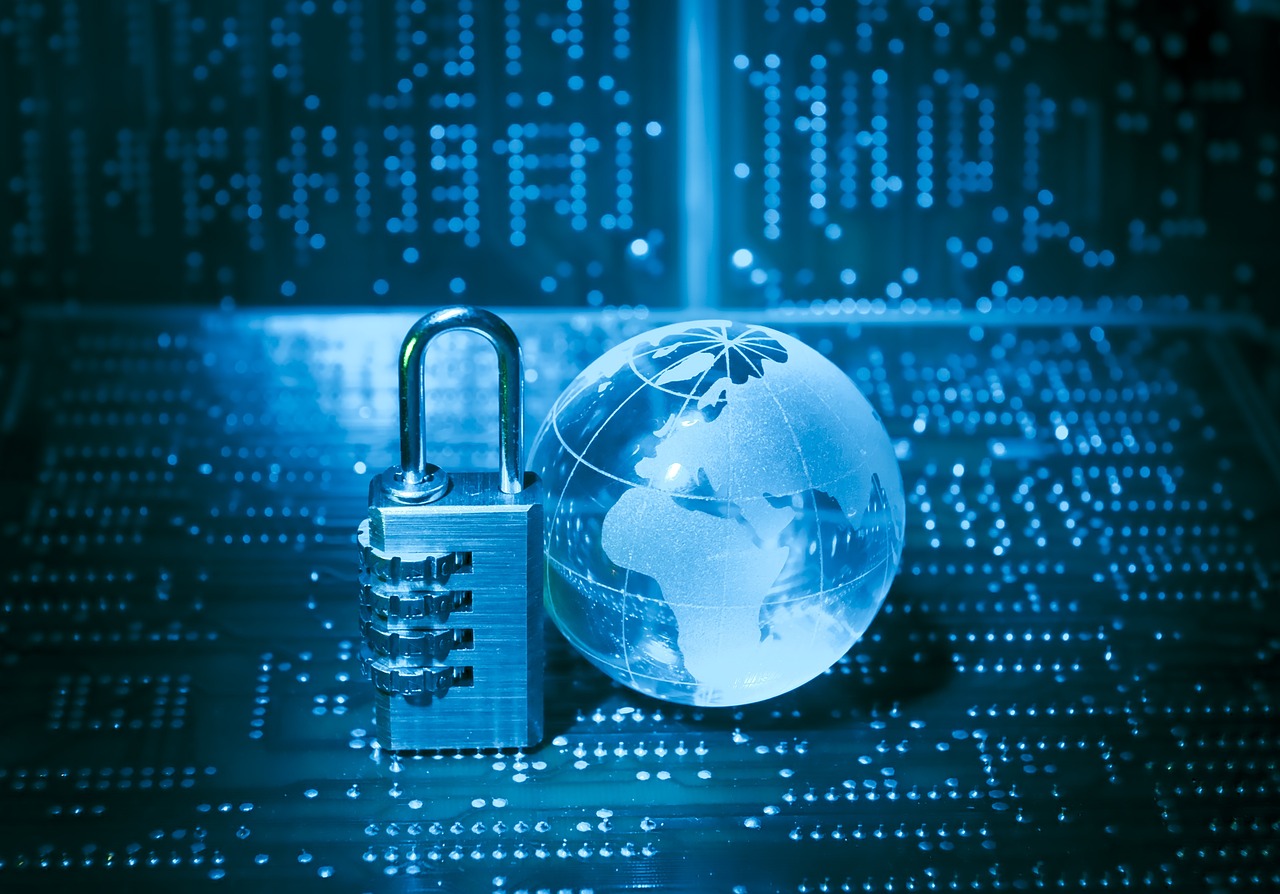
Ongoing Maintenance
When it comes to securing your home, is as crucial as the initial installation of your security systems. Just like a car requires regular oil changes and tune-ups to run smoothly, your security systems need consistent care to function optimally. Homeowners often overlook this aspect, thinking that once their systems are in place, they are set for life. However, neglecting maintenance can lead to vulnerabilities that intruders might exploit.
Regular maintenance involves checking your security systems for any potential issues, updating software, and replacing outdated components. It’s essential to establish a routine schedule for these checks. For instance, consider performing a thorough inspection at least twice a year. During these inspections, you should:
- Test all alarm systems and sensors to ensure they are functioning correctly.
- Inspect cameras for any obstructions or damage to lenses.
- Update passwords and access codes to maintain security integrity.
- Check batteries on wireless devices to prevent failures during emergencies.
Moreover, many modern security systems come with software that requires regular updates to enhance functionality and security features. Failing to keep these systems updated can leave them vulnerable to cyber threats. Therefore, keep an eye out for notifications from your provider about necessary updates, and don’t hesitate to reach out to them for assistance.
Another critical aspect of ongoing maintenance is customer support. Establishing a good relationship with your security provider can be a lifesaver. They can guide you through troubleshooting any issues and provide insights on how to optimize your system's performance. Make sure you have their contact information readily available and understand their support hours.
In conclusion, treating your security system with the same care you would give to other valuable assets in your home is essential. By prioritizing ongoing maintenance, you not only enhance the effectiveness of your security measures but also gain peace of mind knowing that your home and loved ones are well protected.
As homeowners navigate the complexities of selecting and maintaining a residential security service, several common questions often arise. Here are some frequently asked questions to help clarify your understanding:
- How often should I conduct maintenance checks on my security system?
It is recommended to perform maintenance checks at least twice a year, but quarterly checks can provide additional peace of mind. - What should I do if my alarm goes off?
First, check the system for any signs of a break-in. If everything appears normal, contact your security provider for assistance. - Are there any signs that my security system needs maintenance?
Yes, signs include false alarms, malfunctioning sensors, or any unusual behavior from your system. - Can I perform maintenance myself, or should I hire a professional?
While some basic checks can be done by homeowners, it’s advisable to have professionals conduct thorough inspections, especially for complex systems.
Frequently Asked Questions
- What factors should I consider when assessing my home's security needs?
When evaluating your home's security requirements, consider factors like the layout of your property, the neighborhood's crime rate, and any previous incidents. Identifying vulnerable entry points, such as windows and doors, is also essential. Additionally, think about whether you need basic monitoring or a comprehensive security system with advanced features.
- What types of security services are available for residential properties?
There are various security services tailored for homes, including monitoring services, alarm systems, and patrol services. Monitoring services provide real-time surveillance, while alarm systems act as a deterrent against intruders. Patrol services can add an extra layer of security by having personnel regularly check the property.
- How does 24/7 monitoring enhance my home's security?
24/7 monitoring ensures that your home is under constant surveillance, allowing for immediate response to any emergencies. This round-the-clock service can significantly reduce response times during critical situations, providing peace of mind that help is always just a call away.
- Can I access my security system remotely?
Absolutely! Many modern security systems offer mobile monitoring, allowing you to access your security features through smartphone applications. This flexibility means you can check your cameras, receive alerts, and even control your alarm system from anywhere, giving you greater control over your home's safety.
- How can I evaluate the reputation of a security provider?
To assess a security provider's reputation, look for customer reviews, testimonials, and ratings on independent websites. Additionally, consider seeking recommendations from friends or family who have used their services. A provider with a strong track record and positive feedback is often a safer choice.
- What should I look for in terms of certifications and licenses?
Certifications and licenses demonstrate that a security provider adheres to industry standards and regulations. Look for relevant certifications from recognized organizations, which can indicate professionalism and a commitment to quality service.
- How can I compare quotes from different security providers?
When comparing quotes, ensure you’re looking at similar services and features. Break down the costs to understand what you’re paying for, and don’t hesitate to ask providers about any hidden fees or additional charges. This way, you can make an informed decision that fits your budget.
- What are the long-term benefits of investing in quality security services?
Investing in quality security can lead to significant long-term benefits, such as reduced insurance premiums, increased property value, and enhanced peace of mind. A reliable security system can deter crime, potentially saving you from costly damages or losses in the future.
- How do smart home features contribute to residential security?
Smart home features, like smart locks and cameras, enhance security by providing homeowners with greater control and convenience. These technologies allow for remote monitoring, alerts, and the ability to manage access to your home, making it easier to secure your property effectively.
- What role does customer support play in choosing a security service?
Reliable customer support is crucial for any security service. Responsive customer service can make a big difference during emergencies or when you need assistance. Ensure that the provider offers accessible support channels and has a solid plan for emergency response and ongoing maintenance.
- How important is ongoing maintenance for my security system?
Ongoing maintenance is vital to ensure your security system functions optimally. Regular checks and updates can prevent malfunctions and keep your system up to date with the latest technology, ensuring that you remain protected against potential threats.







